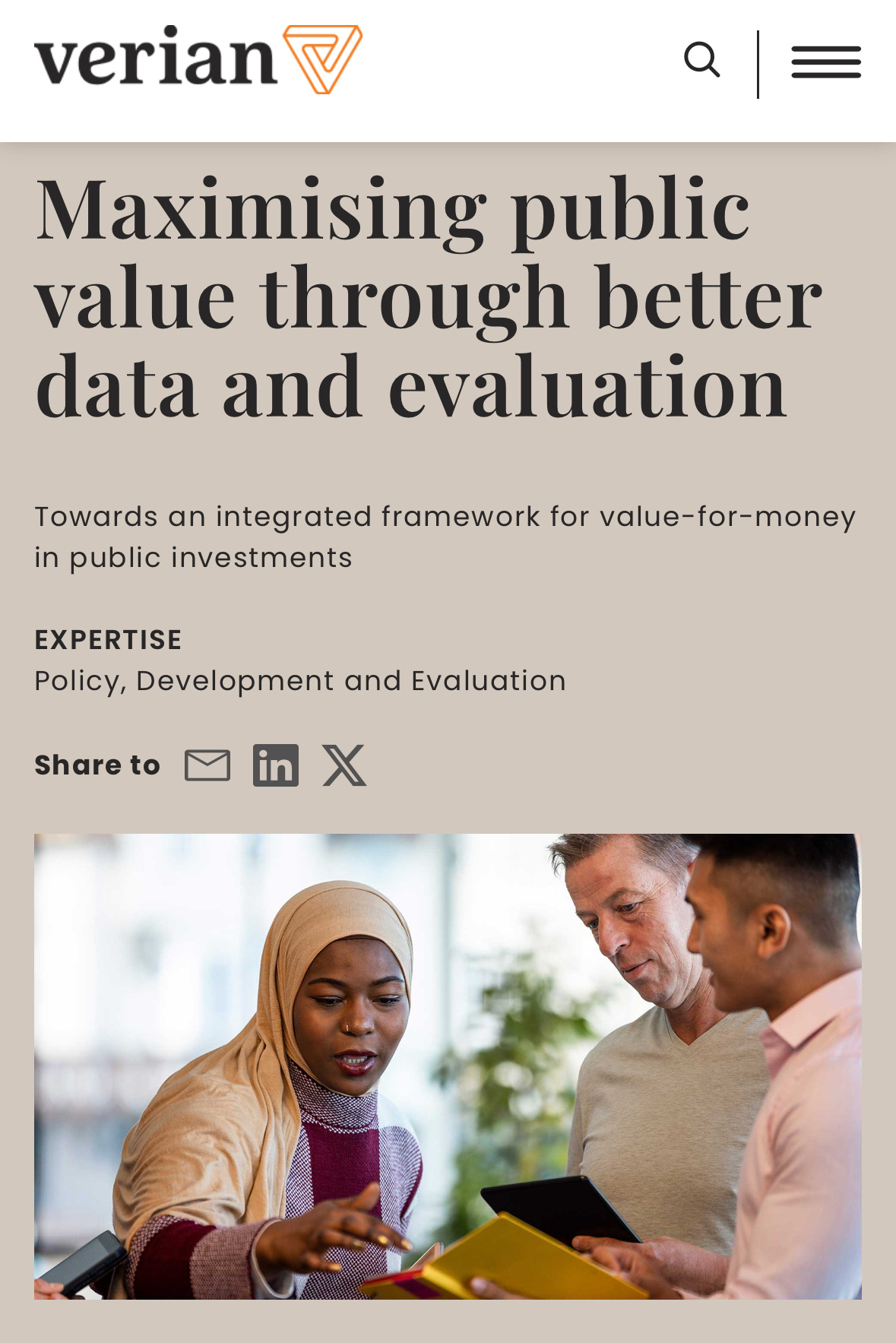Maximising public value through better data and evaluation
Towards an integrated framework for value-for-money in public investments
Public investments often don’t use resources as well as they could, and under-deliver on value creation. Common problems include appraisal practices that prioritise easily monetised outcomes, overestimate benefits and underestimate costs, and management practices that focus narrowly on cost and schedule adherence rather than benefit realisation and learning. Evaluation is treated as a discrete activity that happens at a point in the policy cycle rather than a way of thinking that can inform every stage. These practices lead to repeated underperformance, missed learning opportunities, and diminished value to society.
A few months ago at the UK Evaluation Society (UKES) Conference in Glasgow, I joined a panel with Alex Hurrell (Verian Group), James Collis (Economics Observatory, LSE), and Dr Sam Franzen (Oxford Global Projects) to present an integrated evaluation framework for value for money across the policy cycle, addressing biases and gaps in current practice to support better decision-making, resource use, and public value.
To reach a wider audience, we have summarised our presentation in a blog post now available on Verian’s website.
Check it out:
Collis, J., Hurrell, A., Franzen, S., King, J. (2025). Maximising public value through better data and evaluation: Towards an integrated framework for value-for-money in public investments. Verian Group.


